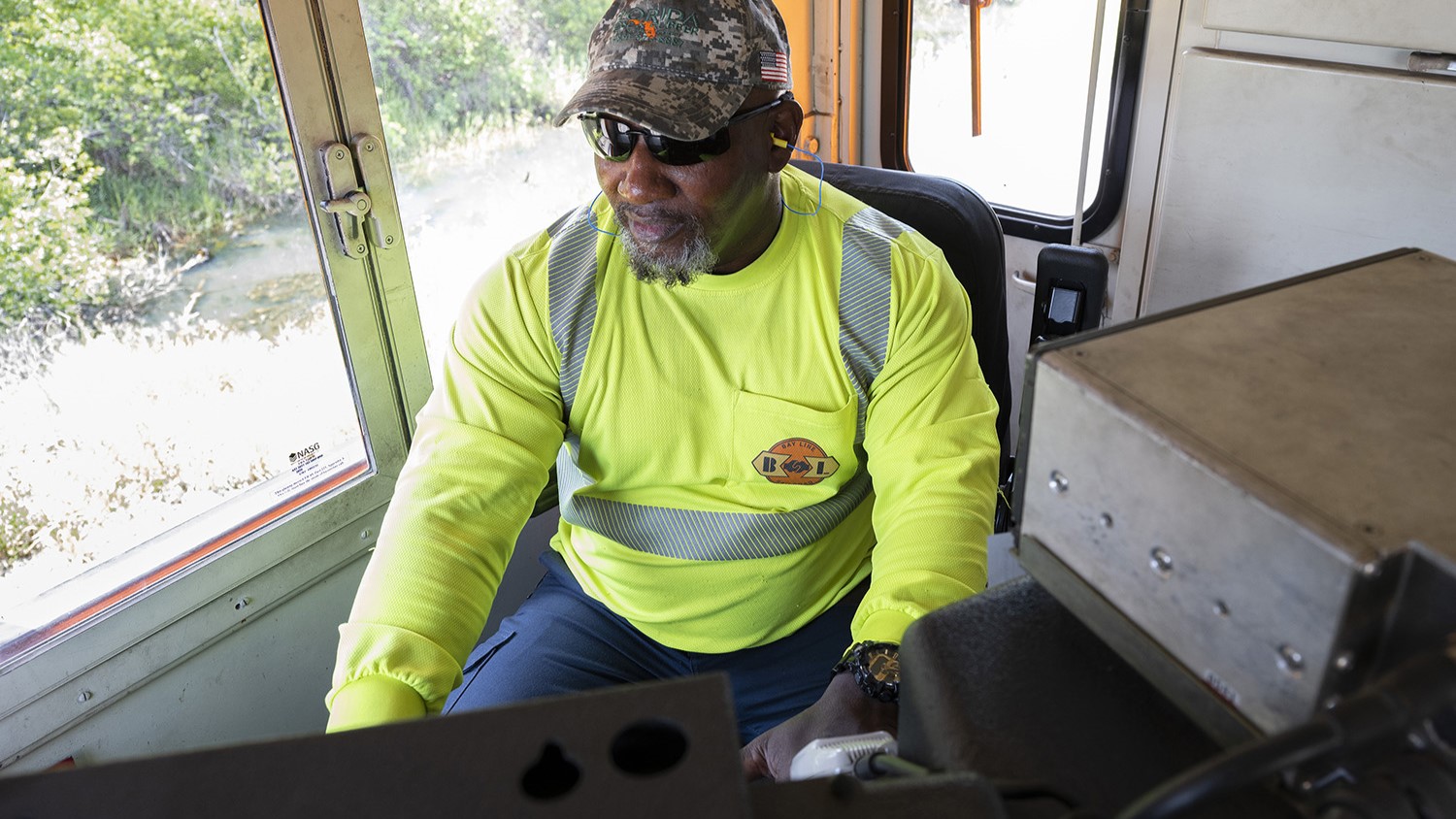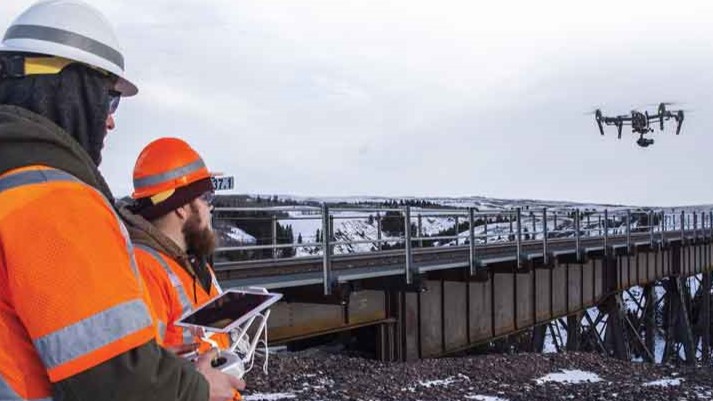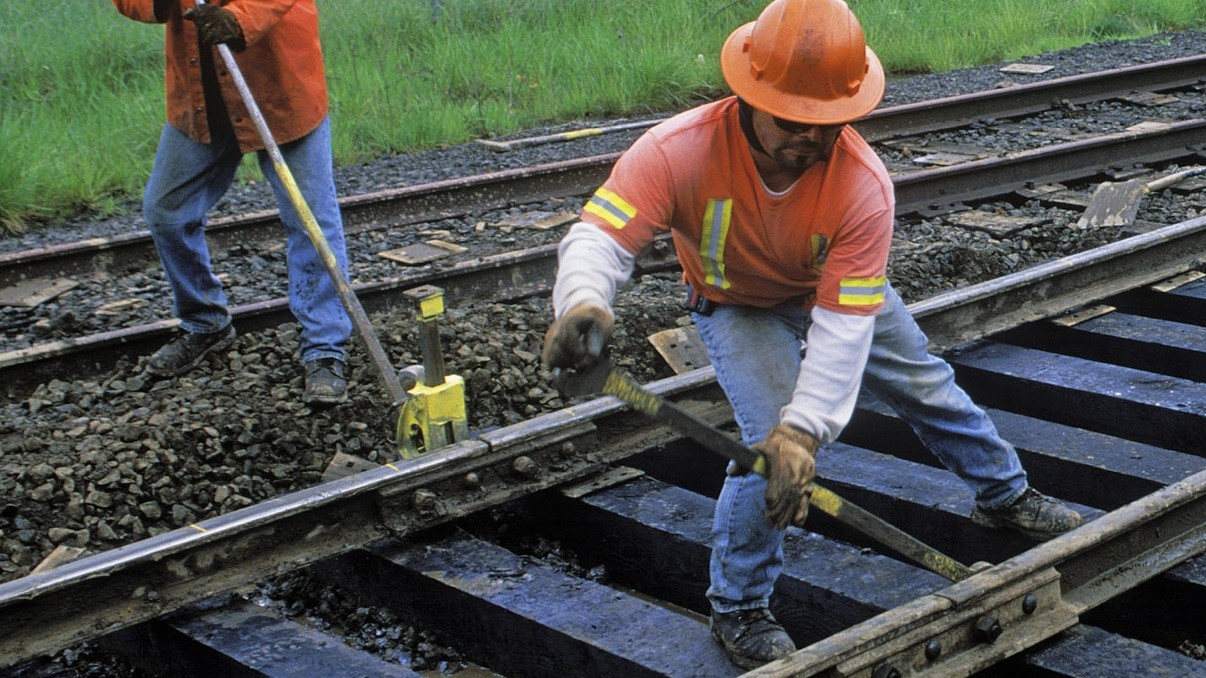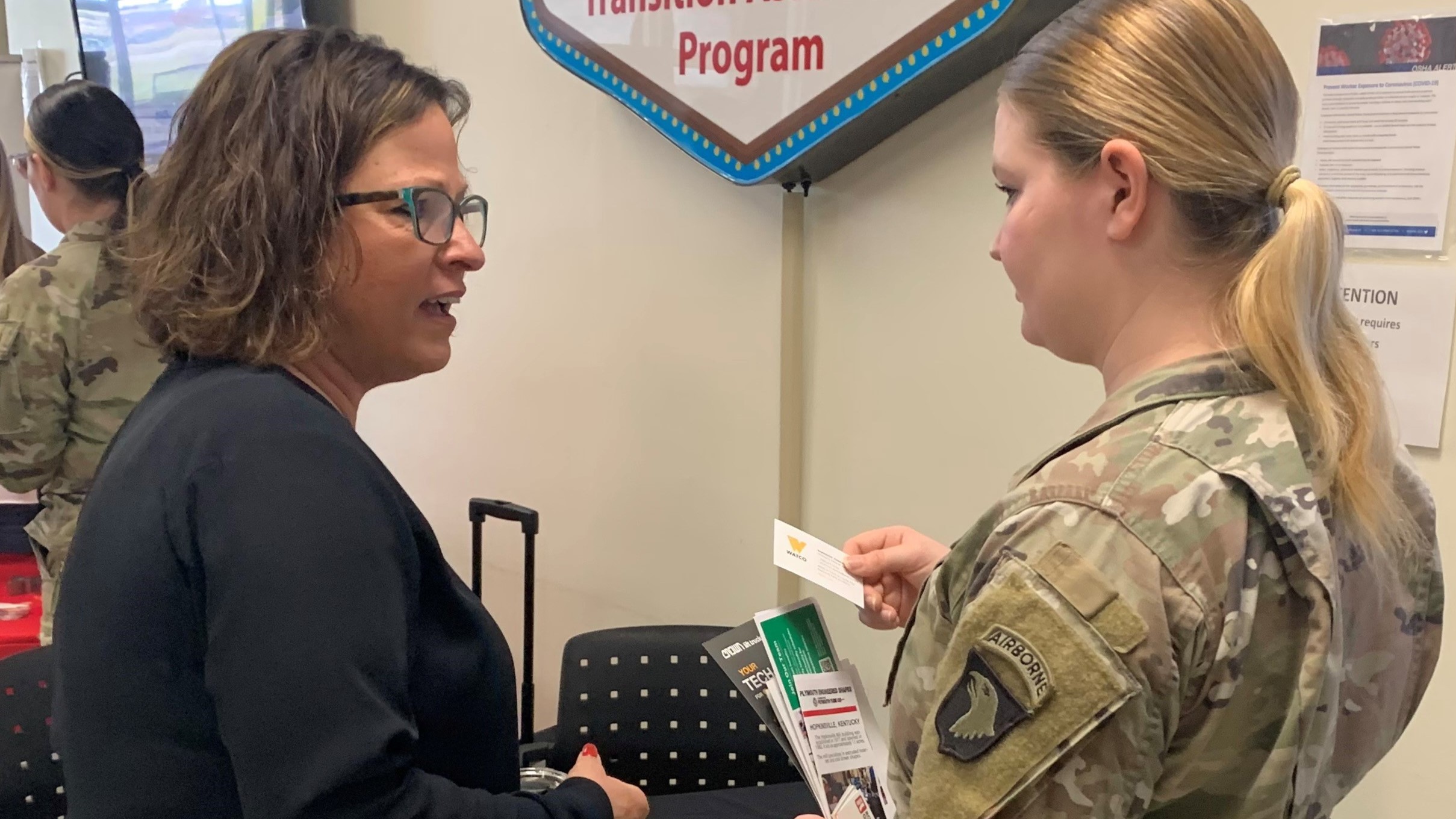
Offering positions in operations, maintenance and repair, innovation and technology, finance, legal, human resources, marketing and sales, leadership and more, these often nationally recognized and award-winning regional and short line railroads are a vital part of the national freight rail network, touching communities across the United States.
Work with people passionate about their organizations, industry and mission, who are the backbone of the American economy. Railroaders power the safest, greenest, most efficient mode of transportation over land while ensuring goods, products, and commodities move safely to destinations near and far.
Regional and short line railroads prioritize employee engagement, making team members feel valued, respected and recognized. These companies provide training and education, helping team members gain new skills, access top-tier onboarding, job or career growth, and they offer many opportunities for advancement and personal development.
Those who work at these companies are put in the right environment to succeed. Team members receive competitive compensation, excellent benefits packages and have a good work-life balance to help them achieve brighter futures. These opportunities often hold up in economic downturns, allowing individuals to build on continuous success and take initiatives to progress and grow their areas of expertise and their organizations.
From military members and veterans to those of all education levels, individuals seeking second-chance careers and countless others, regional and short line railroads embrace diversity.
Steer your professional future with a regional or short line railroad! Keep reading to learn more about these opportunities or follow the link below to view different railroad companies and the geographic areas in which they operate.
Click below to go directly to links for ASLRRA member career pages.
Click below to view schools that provide railroad-related courses, degrees and certifications.
There are many things that need to get done on a railroad, so the types of jobs available vary greatly and offer opportunities for people with all levels of skill, experience and education. Many of the positions at a short line or regional railroad offer employees the opportunity for career diversification. For example, many locomotive engineers also work as conductors. Many composite mechanics repair both locomotives and railcars. The opportunities to learn are endless!
The U.S. Bureau of Labor Statistics gives an overview of Railroad Workers on its Occupational Outlook Handbook webpage. Otherwise, read on to learn about general railroad employment categories and examples of the types of jobs and accompanying responsibilities that fall under each.

This includes locomotive engineers and conductors who operate the trains to ensure the safe pick-up and delivery of railcars to our customers and other railroads; logistics employees who ensure smooth internal operations and external customer communication; drivers who transport crews, supplies and equipment; dispatchers who direct and coordinate rail traffic, customer service representatives and crew callers.
There are also yard masters or trainmasters who work in rail yards to move trains between tracks and manage incoming and outgoing traffic and oversee train crews.

This includes those who develop, deploy and manage the latest in rail technology. Many railroads, including short lines, are working to adopt technologies that improve operational safety and reliability, reduce rail's environmental impact and ensure cybersecurity. Individuals can work with the latest software and systems used on locomotives, trackside detectors and task management and can also be responsible for writing manuals and or teaching others how to use their newly developed software.
Examples of specific jobs include software developers, system analysts, drone operators and environmental managers. Drones are used to conduct critical inspections, in mapping and surveying, site security and incident command and response. Drones also help survey damage at remote incident sites. Environmental managers prepare permits and ensure compliance with environmental regulations.
This includes mechanics and car repairmen who build, inspect, service and repair locomotives, such as diesel engines, generators, wheels, air brakes, wiring and lighting systems and railway cars according to company, industry and federal regulations. Many successful employees have education or work experience as diesel mechanics and electricians.
Railcar mechanics work on all types of rail cars, operating heavy machinery to move equipment and then using a variety of hand tools like torch cutters, grinders and air reamers to take apart cars or remove damaged portions and rivet and weld everything back together.
These positions require detailed inspections and troubleshooting.

This includes individuals who handle all aspects of internal and external communications for railroads. Communications and public relations staff may write press releases, official statements and company newsletters; manage the railroad's social media accounts; work with local media outlets; assist executives in preparing speeches and articles and more. Some tasks undertaken by marketing professionals include attracting business in various ways, such as through digital and print advertising or by selling the railroad's services.
These employees might also be charged with tasks like graphic and web design, video production and editing and photography, or larger companies may hire specialists in these areas.

This includes individuals who are responsible for keeping the railway safe and navigable. Their responsibilities involve repairing and improving track structures, railroad property and railroad facilities; operating the heavy equipment needed to perform construction and maintenance duties; and conducting inspections of railroad track and structures.
Track laborers maintain, repair and replace rails, ties, switches and ballast, while track inspectors ensure railroad track and structures comply with all policies and regulations. Track foremen are responsible for overseeing the safe operations of the day-to-day work of their crew and Roadmasters oversee the safety and work of several crews in addition to maintaining inventory.
Signal maintainers are responsible for managing and repairing electrical and mechanical equipment like hot box detectors and grade crossing warning devices.
This includes trainers, safety and security managers as well as rules and operating practices managers. Some railroads even have their own police department and law enforcement officers.
This group is responsible for the safety training of employees, certification of employees and safe operations across the railroad and must demonstrate a superior understanding of rules and regulations. Many railroads have a locomotive simulator in which new locomotive engineers begin their training.
Often, safety and training services employees get involved in safety and awareness efforts in their communities. They may train local volunteer Emergency Medical Services personnel, such as firefighters and first responders, or work with the nonprofit organization Operation Lifesaver to educate children, drivers and many others about safe practices around railroads, tracks and trains.

This includes accountants and finance employees, administrative and facilities employees, IT technicians and others. Human resources may work in a variety of roles such as talent acquisition, payroll and benefits. Many human resource employees also have the responsibility of the company’s drug and alcohol program. There are also sales and marketing positions. Larger railroads may have a wider variety of staff including legal professionals and paralegals or occupational nurses.
This group is responsible for all tasks related to business management and development, including developing policy and standard operating procedures and administrative support of operation employees.
There are also many key executive positions on the railroad including president, chief executive officer, chief financial officer, chief operations officer or other similarly titled positions. Many short line and regional railroad executives are home grown, rising through the ranks to promote into these roles after having been mentored and provided necessary training and education. At these railroads, the sky is the limit for anyone driven to advance.